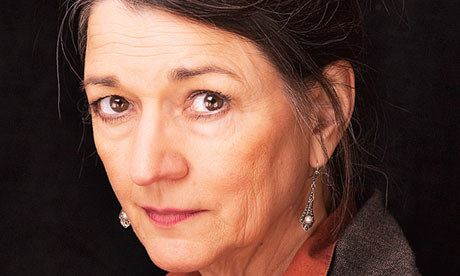Distinguished academic Marina Warner (http://en.wikipedia.org/wiki/Marina_Warner and http://www.marinawarner.com/home.html) offers a short history and analysis of the fairy tale. I was alerted to this by the Guardian review (http://www.theguardian.com/books/2014/nov/20/once-upon-a-time-a-short-history-of-fairy-tale-marina-warner) which turned out to be a splendid summary.
What is a fairy tale? Where do they come from and what do they mean? What do they try and communicate to us about morality, sexuality, and society? The range of fairy tales stretches across great distances and time; their history is entangled with folklore and myth, and their inspiration draws on ideas about nature and the supernatural, imagination and fantasy, psychoanalysis, and feminism. Warner has loved fairy tales over a long writing life, and she explores in this book a multitude of tales through the ages, their different manifestations on the page, the stage, and the screen. From the phenomenal rise of Victorian and Edwardian literature to contemporary children’s stories, she unfolds a glittering array of examples, from classics such as Red Riding Hood, Cinderella, and The Sleeping Beauty, the Grimm Brothers’ Hansel and Gretel, and Hans Andersen’s The Little Mermaid, to modern-day realizations including Walt Disney’s Snow White and gothic interpretations such as Pan’s Labyrinth. In ten succinct chapters, the author digs into a rich hoard of fairy tales in their brilliant and fantastical variations, in order to define a genre and evaluate a literary form that keeps shifting through time and history. Her book makes a persuasive case for fairy tale as a crucial repository of human understanding and culture. Warner’s book has certainly increased my understanding and I recommend it to you.
Alongside this you could do no better than read Iona and Peter Opie, editors, 1974. The Classic Fairy Tales (Oxford University Press). This presents the texts of twenty-four familiar fairy tales as they were first published in English. It summarizes the history of each tale, especially from the textual point of view. Available at this link http://www.amazon.co.uk/Classic-Fairy-Tales-Iona-Opie/dp/0192115596/ref=sr_1_1?s=books&ie=UTF8&qid=1418034938&sr=1-1&keywords=opie+classic+fairy+tales
Also don’t miss Bruno Bettelheim’s 1985 psychological analysis of fairy tales – The Uses of Enchantment: The Meaning and Importance of Fairy Tales. Available at http://www.amazon.co.uk/Uses-Enchantment-Meaning-Importance-Fairy/dp/0394497716/ref=tmm_hrd_swatch_0?_encoding=UTF8&sr=1-1&qid=1418035138 or enquire at your local library.
Do also read the short article in the New Statesman by Rowan Williams on fairy tales available at the link http://www.newstatesman.com/culture/2014/12/rowan-williams-why-we-need-fairy-tales-now-more-ever
For a discussion on the Brothers Grimm fairy tales, listen to the Radio 4 ‘In Our Time’ episode (45 minutes) available at http://www.bbc.co.uk/programmes/b00h8t18 With Juliette Wood, Associate Lecturer in Folklore at Cardiff University; Marina Warner, Professor in the Department of Literature, Film and Theatre Studies at the University of Essex; Tony Phelan, Professor in German at Keble College, Oxford.
Oh! By the way – sweet dreams.
232 pages in Oxford University Press
First published 23 October 2014
ISBN 978-0198718659

Marina Warner


